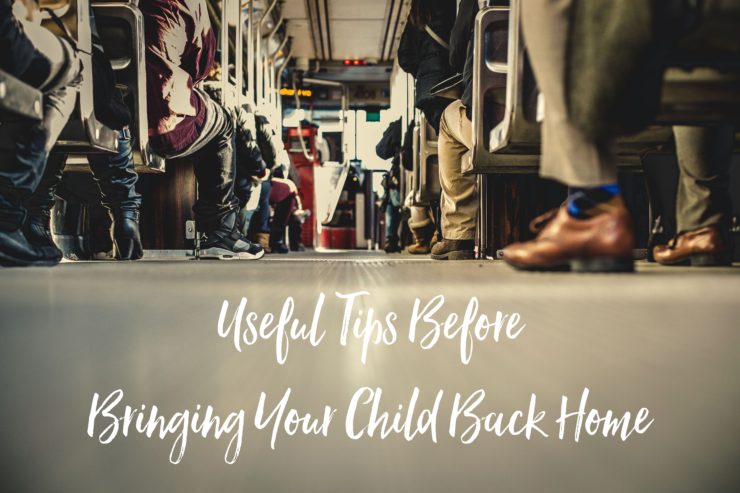You have filled a million pages of paper work. You have passed nerve-wrecking assessments from your country to prove that you are “fit” to be adoptive parents. You have received approved documents from the country your child is living in. You might have read so many books about “attachment” or a trainings about “adoption”. You might have also booked the plane tickets and ready to go pick up your child. Now what? Hm… Here’s another list (for those who like lists) to consider a few more things before you bring your child to your country (especially the older child(ren). )
1. Start Adjusting Your Expectations
Thanks to the training you received and the books you read, you can identify many feelings and thoughts you struggle with internally about the overwhelming task to adopt. However, your child did not read the million books you read about “How to be Adopted?”, “What to Do When You Feel Rejected in a New Country?” “How to be a Successful Minority?”, “How to Cope with Homesickness in Your New Home?”, “How to Trust New Strangers?” etc. Unlike you, they have no idea what they are about to get into (though you may not be always convinced about this). He or she may not know what it means to live in another culture. You, as the parent, play such an important role during this transition to give them permission to grieve and make mistakes.
2. Be Ready to Educate Others
You may be an open book, or you hate talking about or explaining yourself. Well, either way, be ready. All kinds of questions will be thrown at your face from now on with an adopted child (especially internationally). I remember sitting through a sermon and the preacher could not resist looking at my husband’s response, repetitively, (my husband is an adoptee) while preaching on Adoption. I think that the Olympic Gymnast Simone Bile’s story had also taught us a thing or two about how insensitive our culture still is about adoption. You may want to start thinking about what about your child’s story you would like to protect and how to teach them to do so as well. Strangers somehow managed to have the self control to not ask you about your ex-boyfriend or ex-girlfriend’s story the first time meeting you, but cannot suppress the urge or curiosity to ask you about one of the most painful stories of your child when they first meet you. Here’s a good example of how you may inform your child’s teacher (or even Sunday school teacher) to not make your child the token child or to draw unnecessary or intensitive attention in front of the entire class. Tara Vanderwoude did a wonderful job drafting the sample email to protect your child without offending the teachers or other parents. Here’s also a great sample letter for friends and family.
3. Provide “Felt Safety”
“Felt Safety” is a TBRI-term. (Yes, you are going to hear it a lot from now on as a parent of Adoptees). You might know what to expect when you go to a groceries store, but the isle of cereal maybe giving your child a panic attack, simply because they don’t know what to expect. (Ask a missionary, they will tell you that it is even hard for them when they return.) While your child is learning to transition to a new world, the sense of security that you took for granted is NOT the same for them. Go out of your way to explain things to them before any new environment or change is absolutely crucial. That might happen even at home for the first couple of years because they had to unlearn their old life styles for yours, from the different types of towels at home (Did you know that Asian towels are significantly thinner than those in America?)
Even if your child did not have as much to “unlearn” about their culture, depending on what their story was, adoptees always wonder how you might be different from their biological parents (or their foster parents), aka “Will you leave me, too?”. Feeling safe and actually being safe might look similar to the parents, but a huge difference to the child.
Yes, when they are small, you bring them to school, church, their soccer game, their pediatrician. Your community knows that they are adopted. Once they go off to college or independent enough to meet people out of your circle, people will no longer see them as a part of your community. People of their ethnicities will start expecting them to like a certain type of food (most of the time with a good intention), maybe to speak a few words in their language, they may invite them to celebrate some traditional festivals. Perhaps your child is not interested in learning about their culture or language at the moment, at least be ready that these questions may come up at some point. You don’t need to be an expert. Just be open to help your child answer some of the questions which may come. You may not regret it if someday they desire to seek that community again because what they will face might be more complicated than being an expat. Homesickness might be a familiar term to most people who had left their “home”, “hometown”, “Childhood places”. However, depending on many factors of their unique story, all of these important themes will be challenges your child may face sooner or later.
5. Develop Your “You are NOT Crazy” Community
Be Connected with other families of adoption! There will be times when you feel like you are going crazy and somehow your closest friends really don’t understand you. Join a Facebook group or one in your community. Stay in touch with them because they might have some good ideas on which speech therapist, Occupational therapists or counselor work best with adoptees in your area. They also might be able to calm you down and encourage you when you have your “I thought it was just me” moment. A few that I am connected with occasionally organize play-dates, cultural lessons together. It might be extremely helpful for your child to not feel like a minority once in a while. That community might also help you celebrate major milestones that other “biological families” may overlook or not understand.
6. Learn About Self-Care
From my experience of counseling, when people hear “Self care”, they think about manicure, spa, movies, or a luxiours treat somewhere expensive. I am sure that those are pretty cool, but sometimes, self care might mean that you are cutting yourself some slack as a parent. Sometimes, the best self care might mean that you are going to eat healthy and drink enough water, because as a care taker of emotionally demanding children, you need to stay your energy high with a clear mind. Sometimes, self care might mean that you are learning to say NO to social obligations simply because you needed the “Me-time”. You have sacrificed so much throughout the process and you are still giving so much as a parent, that it is ok to take care of yourself, too!
7. Seek Professional Help
Your child might need someone to walk this journey with them as they process their grief and losses. Seeking professional help might allow them to have a “emotionally safe place”. Your child might not need it right away, but perhaps, at a certain season of their lives, they might need someone to help them reconcile their two worlds or to tell them that it is ok to straddle two worlds. Perhaps, you, as a parent, might have had previous hurts that might be affecting your parenting. Perhaps, you need a therapist to bridge between you and your child as you build or rebuild trust. Don’t be a victim because resources are available! There is nothing to be ashamed of, if you or your child might need the extra insight or the extra set of ears through the tougher seasons.

